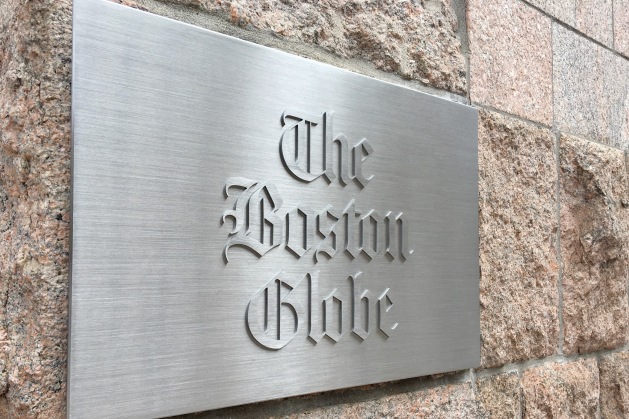The following e-mail, dated Thursday, was sent to members of the Boston Newspaper Guild, the largest union at the Boston Globe. Media Nation obtained a copy of the e-mail from a confidential, reliable source. Click here for background. (As you will see if you click on the link to Editor & Publisher below, the Guild was not entirely accurate in describing the compensation packages of Times Co. chairman Arthur Sulzberger and president Janet Robinson.)
Hi folks,
As you may have heard, the NY Times recently awarded its top two executives more than $10 million in stocks and bonuses for their performance in 2009, a year that for most of us in the Boston Newspaper Guild was a disaster. Two people, Janet Robinson and Arthur Sulzberger, received stocks and stock options equal to the pay and benefit cuts that they demanded from our whole union under threat of closing the Boston Globe for good. We want the New York Times leadership to know that we’re angry and disgusted by their greed and hypocrisy.
Please take a look at the attached letter of protest as well as the link to news coverage of their big pay day. If you agree that it’s wrong and you want to send a message, please email us that you are willing to have your name attached to the letter.
We face contract negotiations with the New York Times company later this year and we want them to know well in advance that, if they can afford to pay executives so much, we expect similar generosity.
http://www.editorandpublisher.com/eandp/news/article_display.jsp?vnu_content_id=1004074880
Dear Arthur and Janet,
We were astonished to learn that the two of you received more than $10 million in stock awards and options in 2009. During the year for which you were so richly rewarded, the 600 members of the Boston Newspaper Guild gave back almost the same amount in pay and benefit reductions — $10 million, to be exact — after you threatened to close our newspaper, lay off hundreds of people, and strip Massachusetts of its largest newspaper.
Previously, New York Times officials told us that we needed to accept pay cuts and unpaid days off along with higher health costs, the elimination of our retirement programs and other benefit reductions in order to save the Boston Globe. But the recent SEC filings make it look like almost all of our sacrifices went to pay the two of you. For most of us up here at your newspaper in Boston, 2009 was financially disastrous, as Guild members were forced to move to cheaper housing, take second jobs, scrap vacations and make other drastic measures to offset more than a 15 percent reduction in our pay and benefits. We made these sacrifices under duress, yes, but also because we understood that the Globe faced real financial challenges in an economic downturn and a dramatically changing marketplace. We did it because we care deeply about our newspaper, its mission, and the critical role it serves in our region and our nation. And we did it with an expectation that our sacrifices would be shared across the company.
The two of you gave us the impression that you understood all that when you visited the Globe last winter. You even personally thanked us for giving up so much for the greater good. Now we learn that, all the while, you were in line for astronomical bonuses over and above your million dollar salaries. Ms. Robinson’s compensation rose 32 percent last year; Mr. Sulzberger’s overall pay more than doubled. While you’ve stopped contributing to our modest retirement plans, the value of your own pensions has increased sharply.
Needless to say, we are insulted, but we also feel betrayed that you would reap such profits at a time when so many of your employees have lost so much.
Our nation’s history is filled with corporate executives who profited handily by cutting workers’ salaries and eliminating jobs. But few of those figures helmed newspapers that have done eloquent, important work in revealing and condemning such practices. For this reason, we are hopeful — as both shareholders and employees — that you will govern this company with morality and a basic sense of fairness.
We have appealed to you once before this year about the Times’ seemingly excessive largesse to its executives in such troubled times. The Times Co. handed out more than $500,000 in cash bonuses to the Boston Globe’s publisher [Steven Ainsley] on his retirement — just as the employees he left behind were forced to schedule eight unpaid days off. We hope that, this time, you will give us the courtesy of a reply and an explanation.
Now that the Times has shown it can afford to lavish so much on a few top executives, we expect our pay and benefit cuts will be restored in the coming months. We look forward to hearing from you.
Sincerely,
Members of the Boston Newspaper Guild


